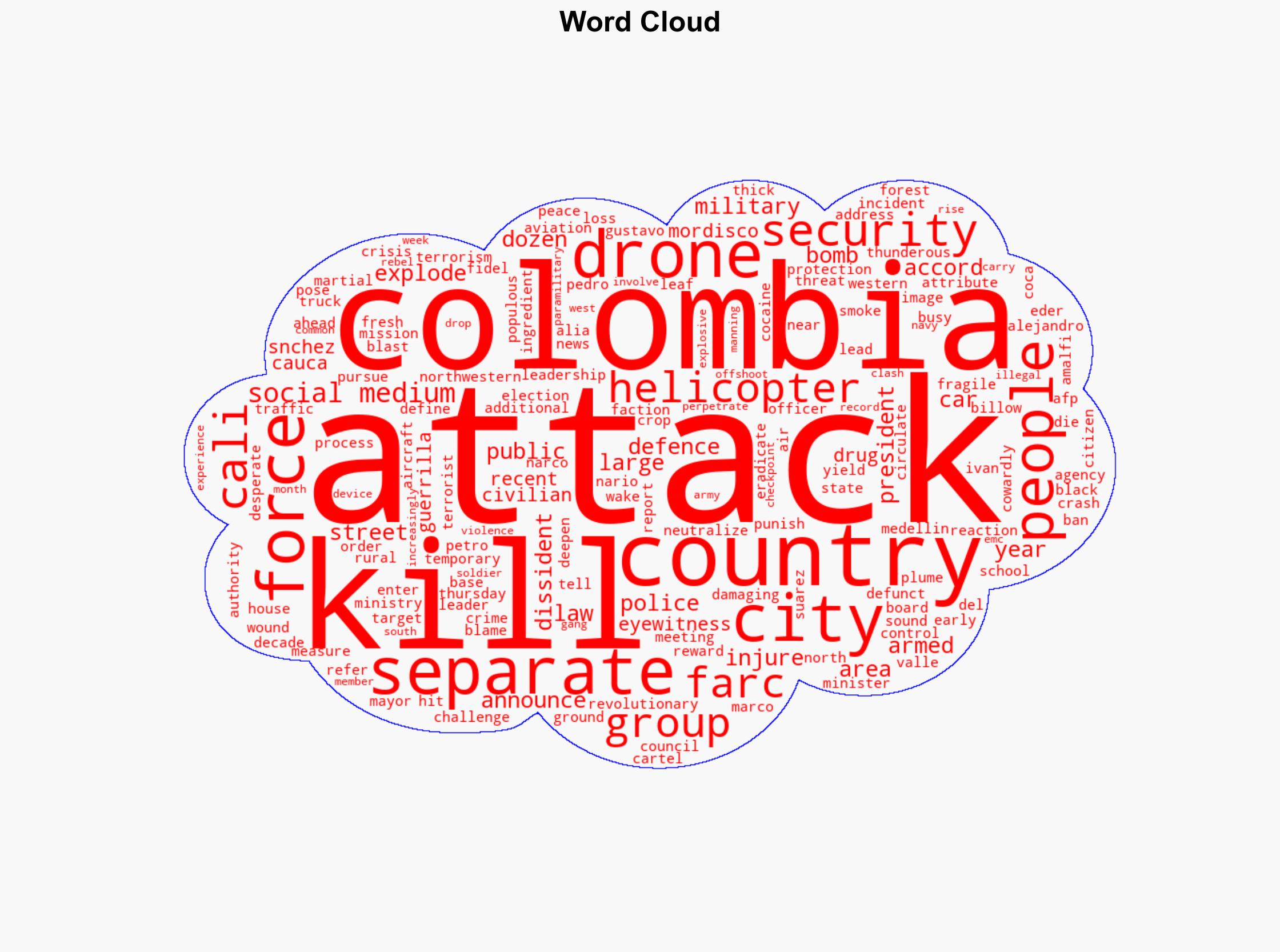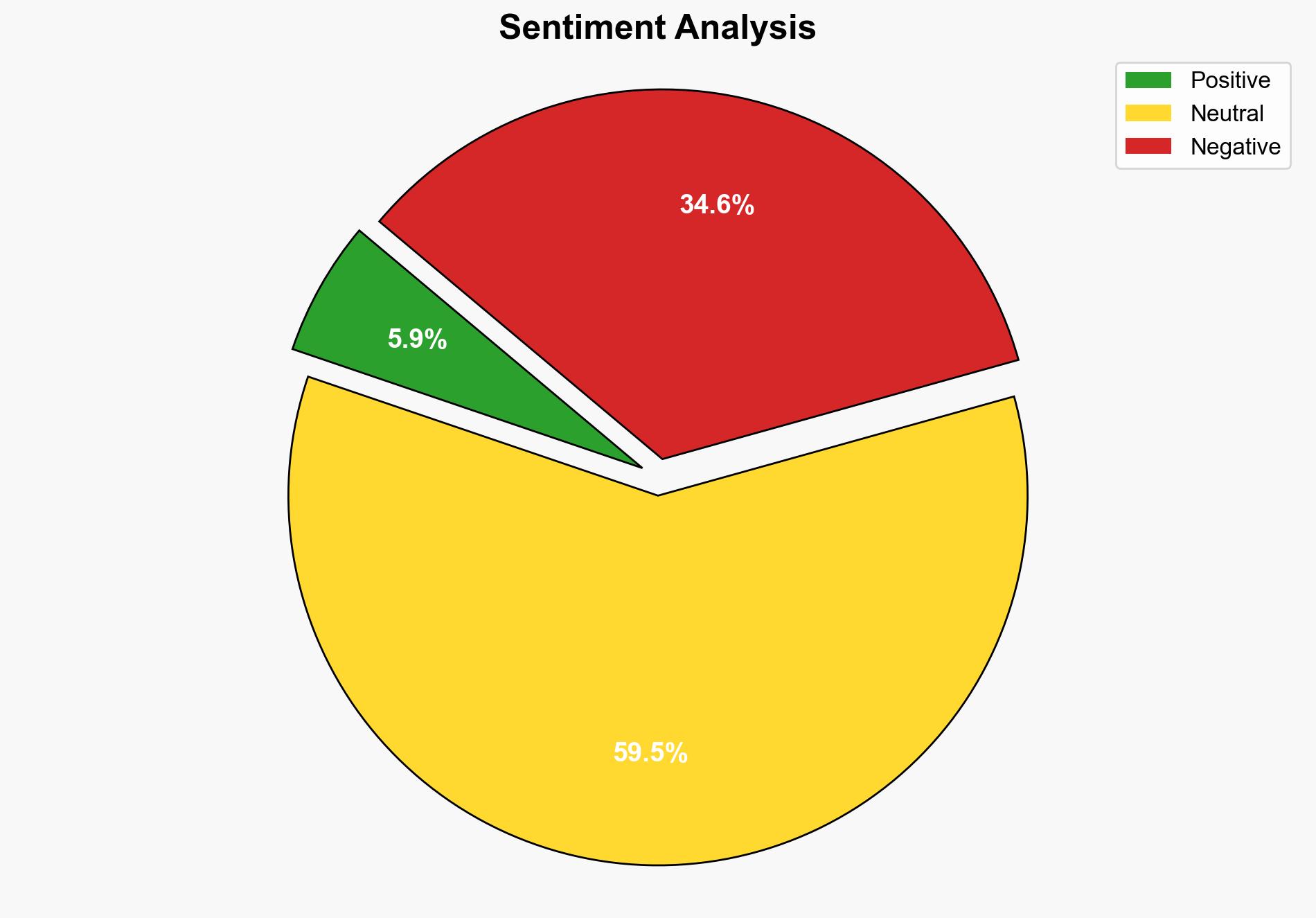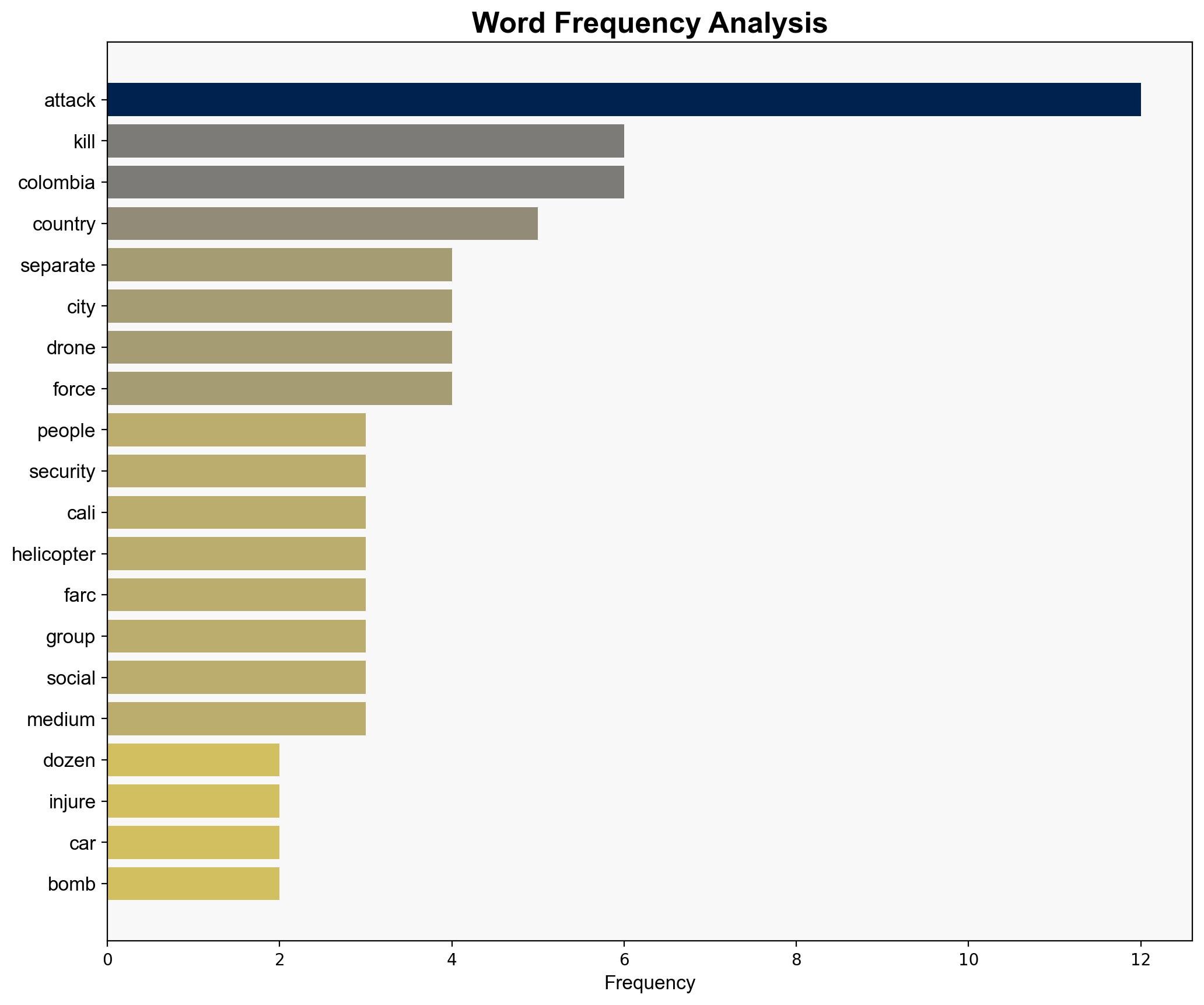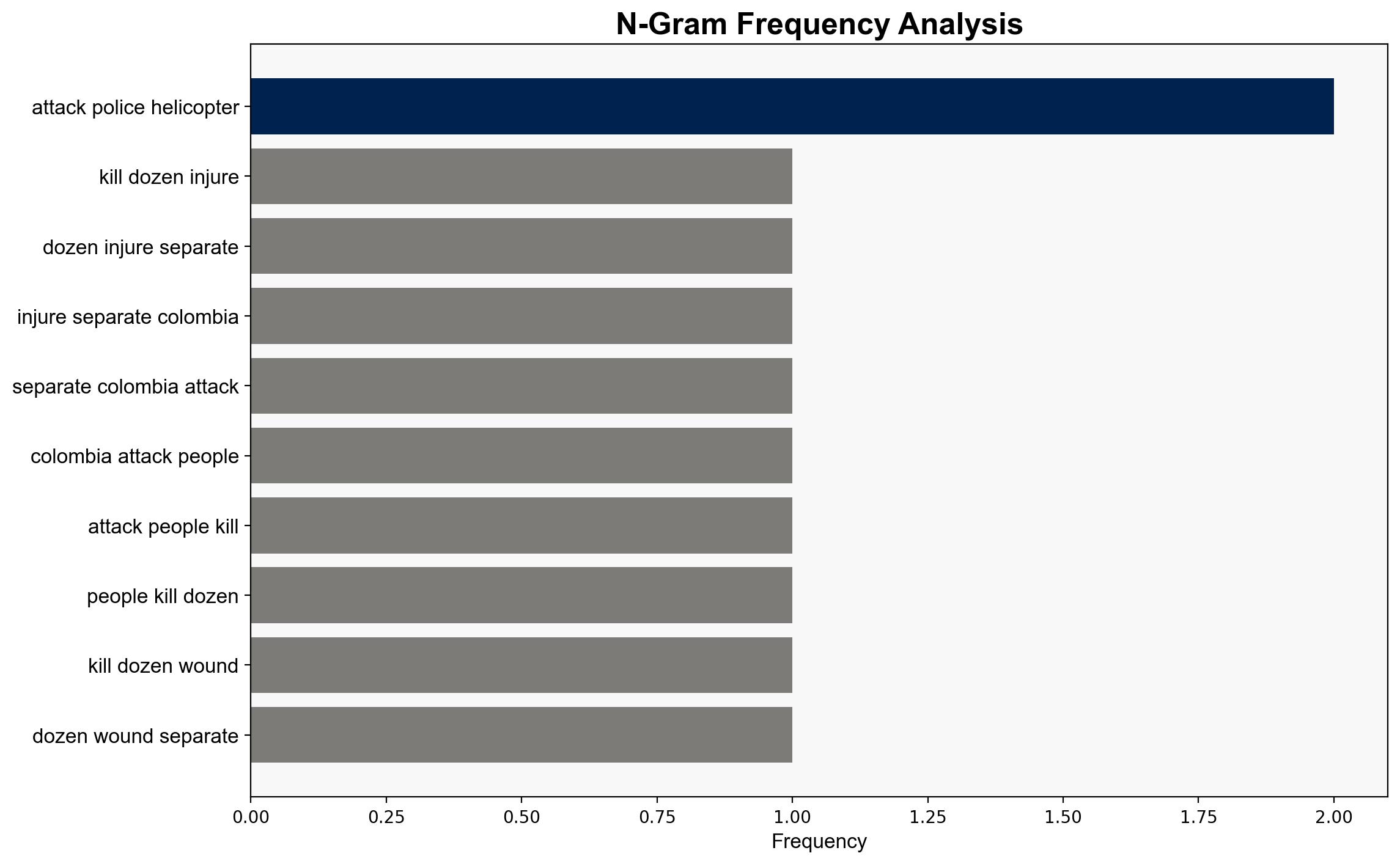At least five dead and dozens injured in Colombia car bomb attack – BBC News
Published on: 2025-08-22
Intelligence Report: At least five dead and dozens injured in Colombia car bomb attack – BBC News
1. BLUF (Bottom Line Up Front)
The most supported hypothesis is that the recent attacks in Colombia are orchestrated by dissident factions of the FARC, aiming to destabilize the region and challenge the government’s authority. Confidence in this assessment is moderate due to the complexity of the actors involved and the potential for misinformation. Immediate strategic action should focus on enhancing intelligence operations to prevent further attacks and reinforcing security measures in vulnerable areas.
2. Competing Hypotheses
Hypothesis 1: The attacks are primarily conducted by dissident factions of the FARC, specifically the EMC group, as a strategic move to regain control over drug trafficking routes and undermine the government’s peace efforts.
Hypothesis 2: The attacks are a coordinated effort by multiple illegal armed groups, including paramilitary and drug cartels, to exploit the current security vacuum and increase their influence in key regions.
3. Key Assumptions and Red Flags
Assumptions:
– The FARC dissidents have the capability and intent to carry out such attacks.
– The Colombian government has limited control over rural areas, allowing these groups to operate.
Red Flags:
– Lack of concrete evidence linking all attacks directly to the FARC dissidents.
– Potential for other groups to falsely claim responsibility or remain undetected.
– Inconsistent reports on the exact number of casualties and the sequence of events.
4. Implications and Strategic Risks
The resurgence of violence poses a significant threat to Colombia’s fragile peace process and could lead to increased instability in the region. There is a risk of further escalation if the government fails to respond effectively, potentially drawing in international actors. Economic impacts may include disruptions to local economies and increased costs for security measures. The psychological impact on the civilian population could lead to decreased trust in government institutions.
5. Recommendations and Outlook
- Enhance intelligence-sharing mechanisms with international partners to better track and predict dissident activities.
- Increase security presence in vulnerable areas, particularly around strategic infrastructure and urban centers.
- Engage in diplomatic efforts to strengthen regional cooperation against transnational crime.
- Scenario Projections:
- Best Case: Successful dismantling of dissident networks leading to restored stability.
- Worst Case: Escalation of violence resulting in widespread instability and humanitarian crises.
- Most Likely: Continued sporadic attacks with gradual government response improvements.
6. Key Individuals and Entities
– Alejandro Eder
– Pedro Sánchez
– Gustavo Petro
– Ivan Mordisco
7. Thematic Tags
national security threats, cybersecurity, counter-terrorism, regional focus





